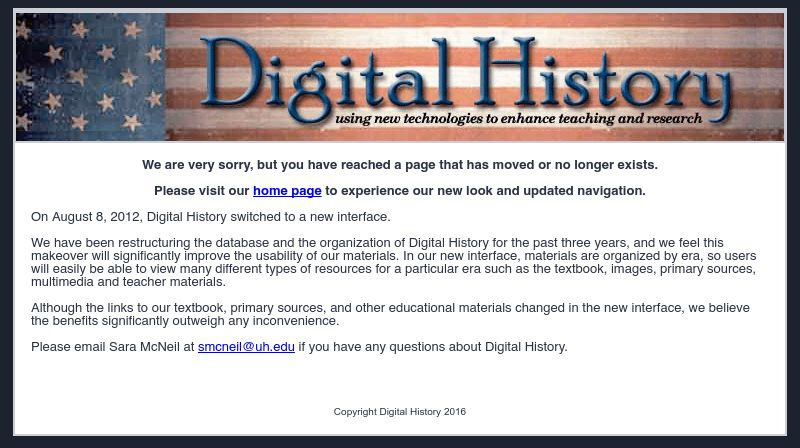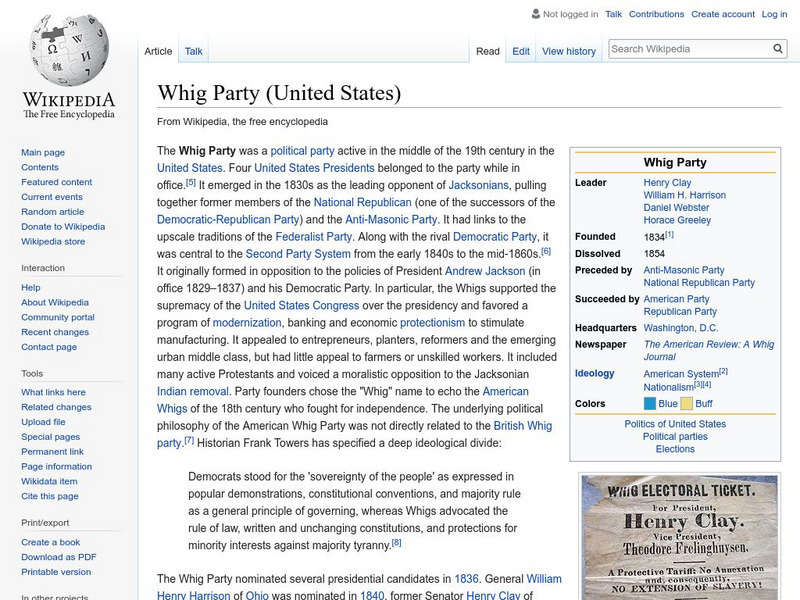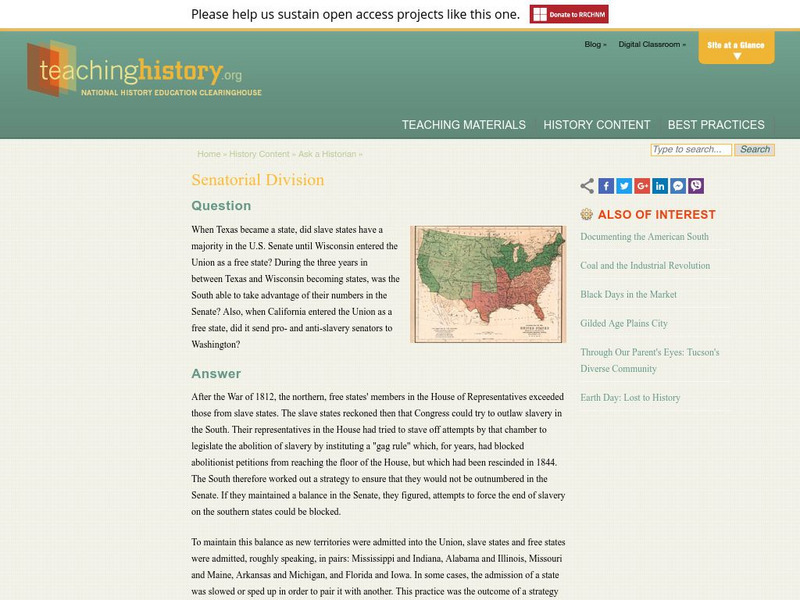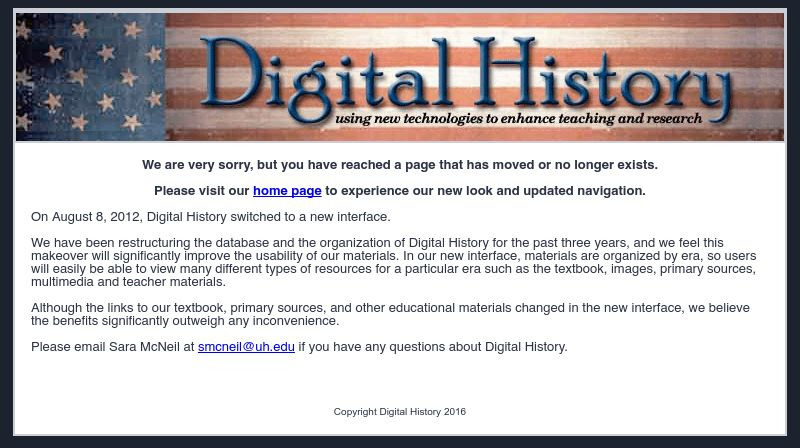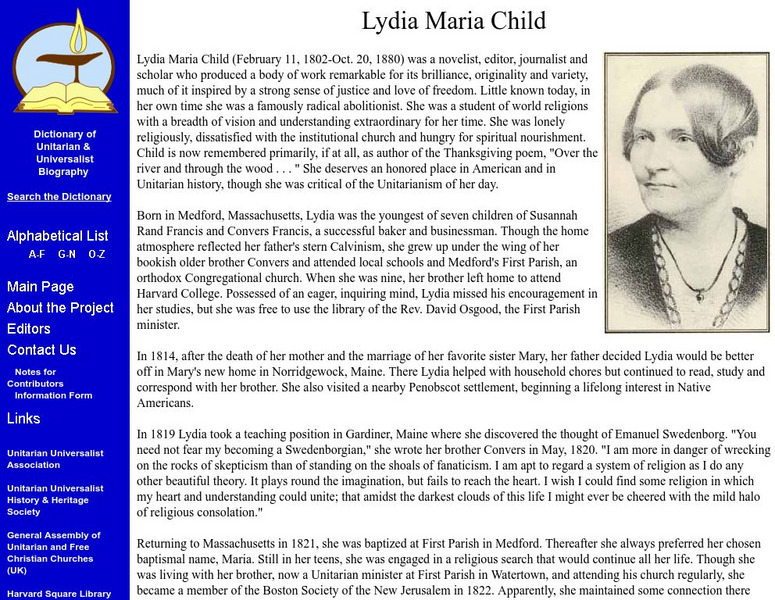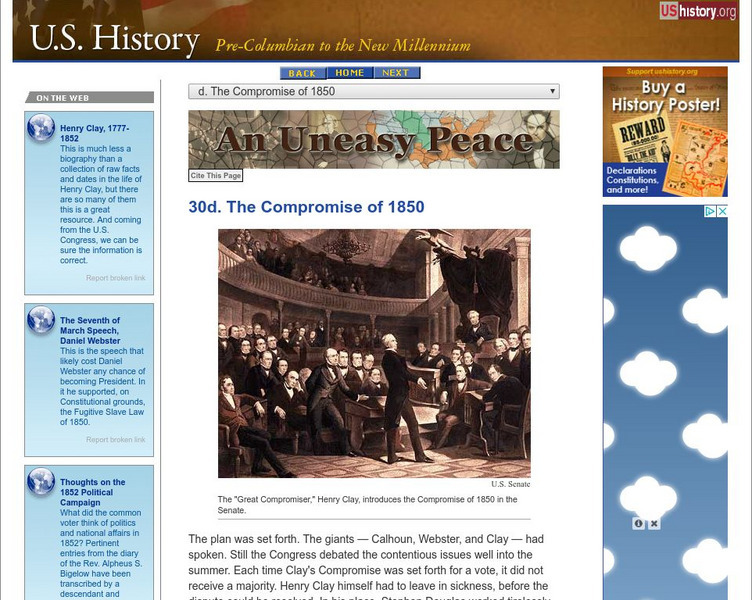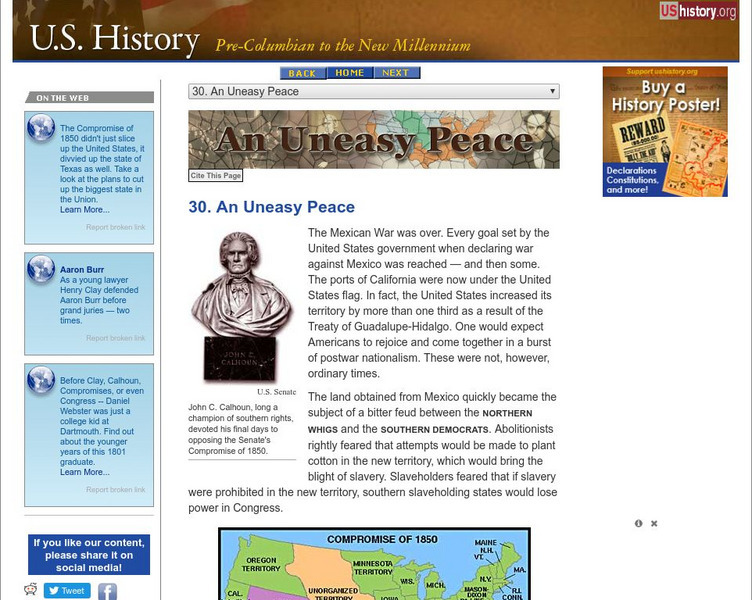National Humanities Center
National Humanities Center: Toolbox Library: Reading Guide: John C. Calhoun
An essay by the South Carolina Senator John C. Calhoun, outlining his belief in a "concurrent majority" and the power of individual majority groups to determine whether to follow a particular law that had been passed.
National Humanities Center
National Humanities Center: Toolbox Library: America in 1850: Daniel Webster: Speech to the u.s. Senate, March 7, 1850
Links to Senator Daniel Webster's famous plea, amidst the turmoil of sectional conflict, for national unity and his support of the Compromise of 1850.
National Humanities Center
National Humanities Center: Toolbox Library: The Triumph of Nationalism: House Dividing: America, 1815 1850
A collection of forty-four primary resources including historical documents, literary texts, visual images, and maps, illuminated and contextualized by notes, thematic questions, and text-specific discussion questions for classroom...
National Humanities Center
National Humanities Center: Toolbox Library: America in 1850: John C. Calhoun
Collection of primary resources on Nationalism, John C. Calhoun on the Clay Compromise Measures, and U.S. Senate, March 4, 1850. Thematically organized with notes and discussion questions.
National Humanities Center
National Humanities Center: Toolbox Library: Toolbox: America in 1850: Daniel Webster
The National Humanities Center presents collections of primary resources compatible with the Common Core State Standards including Daniel Webster, Speech to the United States Senate, March 7, 1850.
National Humanities Center
National Humanities Center: Toolbox Library: William Seward, Triumph of Nationalism: America, 1815 1850
The National Humanities Center present a reading guide that links to a speech in the Senate by William Seward, one that expresses moral outrage over the compromises allowing the expansion of slavery.
National Humanities Center
National Humanities Center: Toolbox Library: America in 1850: Henry Clay
Collection of primary resource material includes Henry Clay's, "A General Review of the Debate on the Compromise Bills," U.S. Senate, July 22, 1850. With questions for discussion.
National Humanities Center
National Humanities Center: Toolbox Library: Harriet B. Stowe, Triumph of Nationalism: America, 1815 1850
A fictional depiction of the turmoil over the existence of slavery-and its human impact.
University of Groningen
American History: Outlines: A Divided Nation
This page from the American Revolution Project of the University of Groningen discusses how the 1850s were a time of conflicting ideas between North and South regarding the expansion of slavery. Scroll down to the third paragraph and...
University of Groningen
American History: Documents: Excerpts From "The Fugitive Slave Act"
This site titled, "From Revolution to Reconstruction," provides excerpts from the text of the Fugitive Slave Act of 1850, part of the Compromise of 1850.
Digital History
Digital History: The Crisis of 1850 [Pdf]
Read excerpts of the contentious debate about slavery in the territories as the U.S. Congress tried to hammer out legislation that could be passed by both houses and signed into law by the president. Find the provisions of the Compromise...
University of Groningen
American History: Essays: Politics and Sectionalism: Compromise of 1850
Summarizes the events that took place to develop the Compromise of 1850.
University of Groningen
American History: Outlines: The Compromise of 1850
Overview of the Compromise of 1850, it's provisions, and discussion of the regional differences that characterized U.S. sectional conflict during the 1800s.
Digital History
Digital History: The Compromise of 1850
Before finding the final terms of the Compromise of 1850, read about the disputes and debate that accompanied the attempts to pass something that would address Northern and Southern concerns.
Wikimedia
Wikipedia: Stephen A. Douglas
he A lengthy biography of Stephen Douglas. Discusses his involvement in politics, in particular, his involvement with the slavery issue, his runs for presidency, his famous debates, and much more.
Wikimedia
Wikipedia: Henry Clay
An in-depth biography on American statesman and orator Henry Clay which lists his numerous life accomplishments as well as a discussion of his political life. Content includes information on his "American System," his views on slavery,...
Wikimedia
Wikipedia: Whig Party (United States)
Wikipedia offers detailed information on the United States Whig Party. Includes info on the creation, growth and end of the Whig Party.
Roy Rosenzweig Center for History and New Media
Teaching History: Ask a Historian: Senatorial Division
A discussion of how the political balance kept shifting as free and slave states were admitted to the Union prior to the Civil War.
Digital History
Digital History: The Impending Crisis: Conclusion
A concise review of the ways the issue of slavery split the country from the Missouri Compromise to eventual secession of the southern states.
Other
Unitarian Universalist Biographical Dictionary: Lydia Maria Child
Read about Lydia Child's involvement with the abolition movement and her work in the 19th century women's suffrage movement.
Tom Richey
Tom richey.net: The Mexican War and the Compromise of 1850 [Ppt]
Presents key ideas for examining America's involvement in the Mexican War, westward expansion and the concept of Manifest Destiny, the Compromise of 1850, and the individuals involved in these issues.
Tom Richey
Tom richey.net: The Crisis of the Union (1850 1860) [Ppt]
Presents key ideas for examining the events and issues that led to the American Civil War.
Independence Hall Association
U.s. History: The Compromise of 1850
Find the various parts of the Compromise of 1850, proposed by Henry Clay, that extended slavery in some cases, prohibited in others, and added California as a free state. A clear chart shows what parts of the law were beneficial to the...
Independence Hall Association
U.s. History: An Uneasy Peace
See what turmoil resulted from the acquisition of new territory after the Mexican-American War. There was great disagreement between those who wanted to abolish slavery and those who wanted to be able to carry slavery into the new lands....






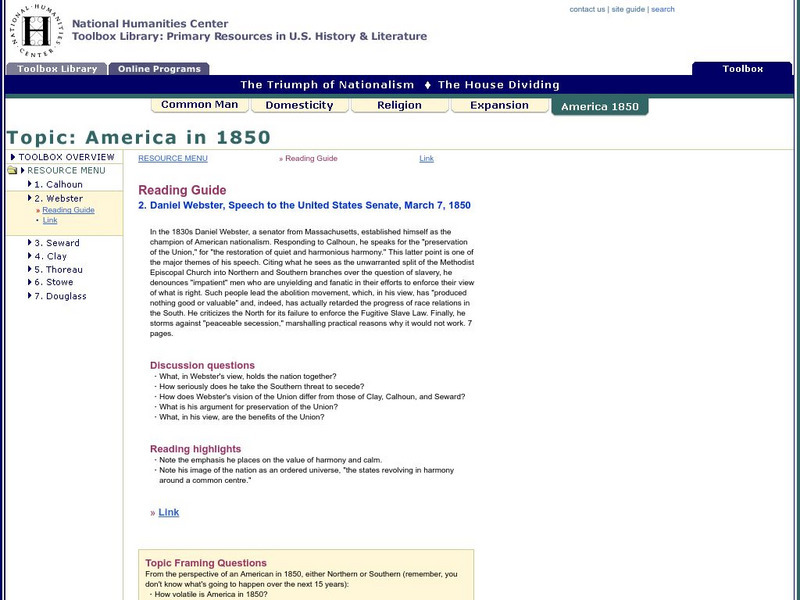


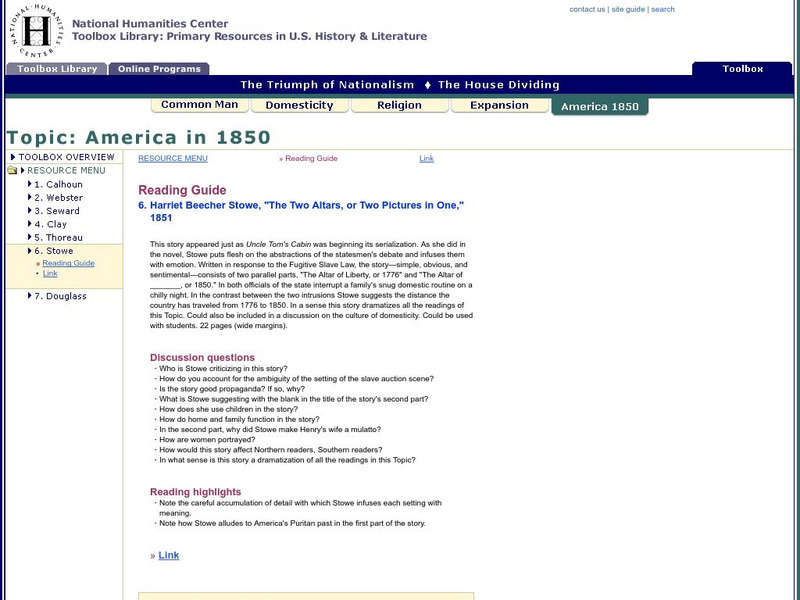


![Digital History: The Crisis of 1850 [Pdf] Website Digital History: The Crisis of 1850 [Pdf] Website](https://d15y2dacu3jp90.cloudfront.net/images/attachment_defaults/resource/large/FPO-knovation.png)


